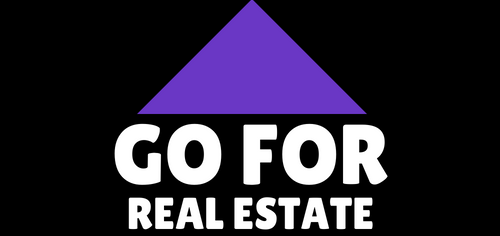Multiple Listing Services (MLS) are multi-broker organizations that promote property listings and are part of the real estate industry. They facilitate cooperation between sellers’ and buyers’ brokers across North America, as well as other regions around the globe. The MLS is used by more than 80 percent of the homes that are sold in the United States.
MLSs are essential to ensuring consumers have a transparent and competitive marketplace. These details are hidden beneath the superficial internet advertising most people see. This guide answers common questions about the MLS, its brokers, consumer clients, and the technology that allows for the MLS marketplace.
What is an MLS?
Multiple Listing Service is an association of brokers. It sets forth rules for collaboration in selling and sharing listings. An MLS broker agrees to sell listings for other brokers. Brokers agree to do the same in return.
Statewide MLS requires that all competitors cooperate in order to close successful transactions. This provides great benefits to consumers who are selling or buying real estate. A technology platform today is built on the foundation of the broker cooperative or MLS organization.

How many MLS’s are there?
There are 597 MLSs across the United States as of 2020. This number decreases each year due to the regional consolidation of MLSs. Canada is served by a relatively small number of MLSs (39), which are not all available in the country. MLSs are not common in most countries.
When did MLSs get started?
MLSs were created in the late 1800s. This was long before the advent of computer and internet technology. Online MLSs were created before the advent of paper notes, index cards, and in-person listing sharing.
Who is a member of the MLS?
Join an MLS by joining a group of real estate brokers. Multiple MLSs are often joined by brokers who cross multiple markets.
Who are the participants and subscribers to an MLS?
Participants are brokers in an MLS. Subscribers are agents in an MLS. Agents can’t join an MLS unless they are referred to by their broker.
How do I list my house on the MLS?
A real estate broker can help homeowners list their homes on the MLS. Only brokers who are members of the MLS can list properties.
Why should I list my house on the MLS?
Every broker who is working with buyers looking for this type of property can see the listing through the MLS. Brokers can approve internet marketing through the MLS. Listings that require privacy can be excluded for internet marketing, but still sent to the MLS brokers to provide more discreet exposure to buyers.
Is the MLS a database?
Although the MLS does have a database, it is more than that. A listing database can be created by the organization, and it is shared among participating brokers under its cooperative broker rules.
Are websites like Zillow.com and Realtor.com MLSs?
These are popular websites that obtain some of their listings from MLS. However, they are not MLSs. These websites are advertising portals or brokerage websites that have permission to display real estate listings.
All of these organizations are RESO members and contribute to the development of data standards that will drive MLS technology innovation.

Why is there more than one MLS in the same market?
MLSs created from local associations may grow and overlap in other MLS marketplaces. They do not have to be restricted by their location. Although MLSs that are competitive may merge or share data, many markets have duplicate services from multiple MLSs.
Who is the owner of the MLS?
The majority of MLSs are owned and controlled by the REALTOR(r), the association that created them. Multiple associations may own them in a regional MLS. Some MLSs were created directly by brokers who are the MLS owners.
Who manages the MLS?
There are many ways MLSs can be managed. Some MLSs owned by REALTOR(r), associations are managed by staff. Some are separate entities with their own staff. Independent MLSs often draw their management strategy from the brokers who founded the cooperative.
Who can join the MLS?
Brokers can only join MLSs owned by REALTOR(r). However, this is not always true. Some states have rules that prohibit non-REALTOR (r) brokers from participating in the MLS. A broker can join an independent MLS. Only participating brokers can sign up for the MLS on behalf of real estate agents.
What are the rules to participate in an MLS?
Participant brokers agree to share their listings with other participating brokers. To act honestly and cooperatively in representing buyers or sellers in transactions with other brokers, they must follow the MLS’s rules.
Who decides the rules of the MLS?
Each MLS has its own rules. The National Association of REALTORS (r) has overarching policies that govern MLSs owned by REALTORS(r). These rules are described in the NAR Handbook on Multiple Listing Policy.
RESO standards are required by some NAR policies for MLSs. These standards improve efficiency in all technology systems.
What is RESO?
RESO is the Real Estate Standards Organization. RESO is an industry association of MLSs and brokers. It creates open standards. These standards promote innovation and interoperability across the industry.
What is the MLS organization like?
An MLS organization has staff, vendors, compliance departments, data licensing agreements, and rules and regulations. You can have a small company that relies on vendors for most of its services or you can have a large corporation with its own staff who provide all its technical and organizational needs.
What is the best way to get data from the MLS?
The MLS provides data for its brokers. With the approval of its brokers, it also makes available data to technology partners. A portion of the MLS data is available for free on broker and MLS websites.
What is the Web API?
There are many ways MLSs can transport data to brokers and technology partners. The RESO Web API standard is the most efficient and modern way to do this. RESO does not provide the service or data, but only the standard model. MLSs offer their own Web API services for delivering data to customers.
Which MLS data are public and which are private?
Public MLS data is typically the information a buyer would use to find out about a listing for purchase. Public information about property, media, and agent marketing comments is usually available. Private information about sellers and agent-only showing instructions are usually held privately by the MLS’s broker participants.
Why are there so many MLSs?
Before the advent of computer technology, MLSs were created for the first time. Brokers and local REALTOR(r), associations would join forces to share listings in their local markets. They set up more than 1,000 local markets and didn’t feel the need to form large regional cooperatives.
MLS organizations are continuing to shrink and consolidate as technology efficiency and a mobile populace make regional and national real estate listings more attractive.
Is there an MLS in every country?
Many countries have MLSs. The United States and Canada are the only two countries where the MLS is widespread and effective in practice.
Is the MLS a website for real estate?
Although the MLS may have a website to promote its services, it is only one of many downstream products. The MLS is not a public marketing platform. The MLS is a cooperative that allows brokers to share listings. MLS helps brokers market their listings better.

Who pays for the MLS?
Agents and brokers usually pay dues to MLS. This can be paid directly to the MLS organization, or through their REALTOR(r), association dues.
Is the MLS allowed to set commission rates?
The MLS doesn’t take a position about a broker’s business model or the commission rates they charge. Most MLSs require that a broker listing a property on the MLS pay compensation to any buyer who brings a willing buyer. The amount of compensation isn’t regulated.
What technology vendors are compatible with which MLSs
North America has about a dozen core MLS platform technology vendors. You can view these certifications here. MLSs can also collaborate with other accessory technology vendors to provide these services to their members.
What does it mean to have an MLS certified by RESO
RESO certification means that MLS technology systems can communicate with other technology systems in a standard manner. RESO-certified systems can communicate with each other in a common language called the language of the standard.
This simplifies the lives of consumers, brokers, and tech companies and accelerates technology innovation.
Is my MLS RESO accredited?
RESO’s MLS map allows you to view all North American MLSs that have been certified. There you’ll also find their certification levels.
What do “cooperation” and “compensation” mean in the MLS?
The MLS’ core principles are cooperation and compensation. Cooperation is sharing listings and adhering to the rules for cooperatively selling listings with other sellers. If you can find a buyer for your listing, compensation is when you offer money to other MLS participants.

